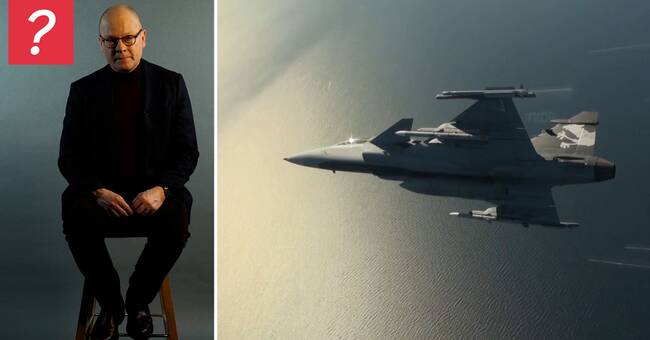When Foreign Minister Ann Linde (S) spoke at the National Conference of the People and Defense on Monday, she warned that political division creates uncertainty about Sweden's security policy.
What she is referring to is the Riksdag decision in the autumn on a so-called NATO option, ie that the government should advocate for NATO membership as an alternative if the security policy situation deteriorates.
S is against
A majority in the Riksdag consisting of the Moderates, the Christian Democrats, the Center Party, the Liberals and the Sweden Democrats have supported this decision.
However, not the Social Democrats, who have been strongly critical.
Ann Linde emphasized in her speech at Folk och Försvar that the decision risks creating speculation about Sweden's security policy line.
She also criticized that the decision in the Riksdag was not preceded by the usual preparation and discussion.
Moderate leader Ulf Kristersson countered that the Social Democrats do not have a perpetual veto on this issue.
Beds for political struggle
This could pave the way for a new political battle over Sweden's relationship with NATO.
However, the debate risks becoming more difficult to understand than before.
Namely, it is not very easy to define the alternatives.
The background is the Sweden Democrats' somewhat unclear position.
The party has long been opposed to Swedish NATO membership, just like the Social Democrats.
You still are.
Despite this, the Sweden Democrats have supported the decision in the Riksdag on a NATO option.
So you are for an alternative that you are basically against.
This in turn means that there is a majority in Sweden's Riksdag for a NATO option, despite the fact that in the same Riksdag there is no majority for a NATO membership.
Snarky Swedish Natolinje
It is thus no exaggeration to say that the Swedish NATO line appears to be significantly narrower than in a long time.
Nor can the message from Ann Linde on People and Defense be interpreted in any other way than that the government does not intend to obey the Riksdag decision on the issue.
This could therefore lead to the debate on NATO gaining momentum again.
The question is how far a majority in the Riksdag is prepared to pursue this issue.
On the one hand, it is tempting for the opposition to squeeze the government into this symbol-laden issue, on the other hand, the Moderates, for example, are well aware that fundamental changes in Swedish security policy also include the Social Democrats.
The M-leader wants to see broad political agreement
Moderate leader Ulf Kristersson keeps several doors open.
At the same time as he on Monday rejected an eternal social democratic veto on the NATO issue, he stated that a Swedish NATO membership should be preceded by "a real political discussion" and "broad political agreement".
It can hardly be interpreted in any other way than that the Social Democrats should also be on the bandwagon in some way.
And there is obviously a long way to go.
As long as the Social Democrats hold government power, are the largest party and there is also no majority for a membership in NATO, it will also not be relevant to try to push through the issue.
SD can decide the NATO issue
This autumn's decision on a so-called NATO option may be logical for those parties that want to take the step into NATO, but have rather created confusion and questions about the Swedish security policy line are changing.
If the decision is a first step for the Sweden Democrats to make a complete turnaround in the NATO issue, well, then the conditions can fundamentally change for a Swedish membership, at least in the long run.
But as long as the Sweden Democrats are against Swedish NATO membership, there is also a lack of a parliamentary majority for this.

